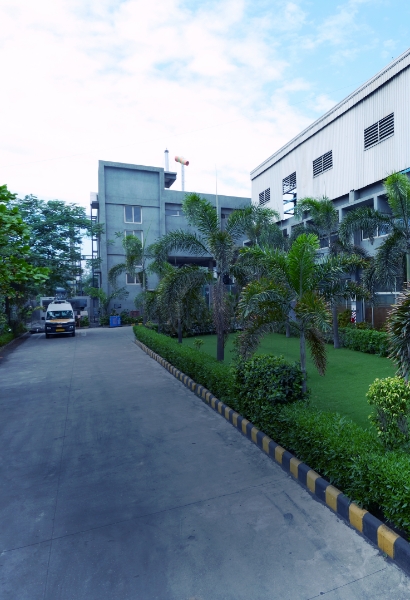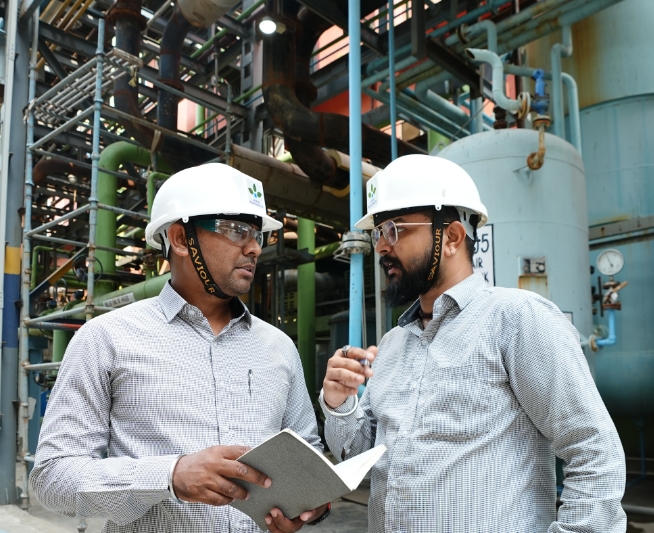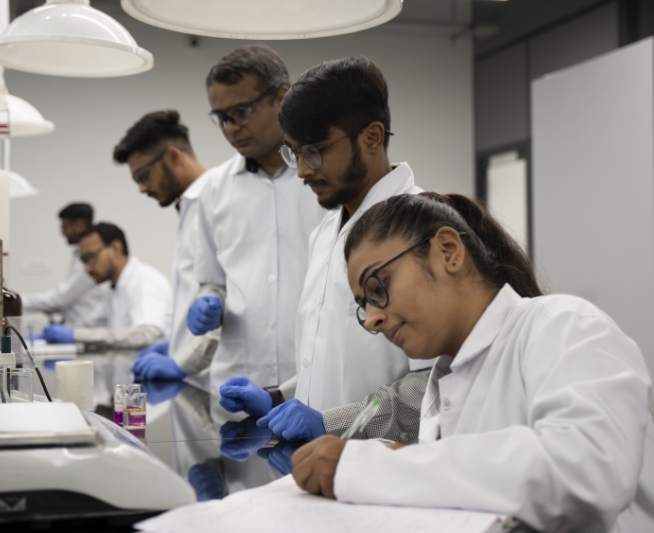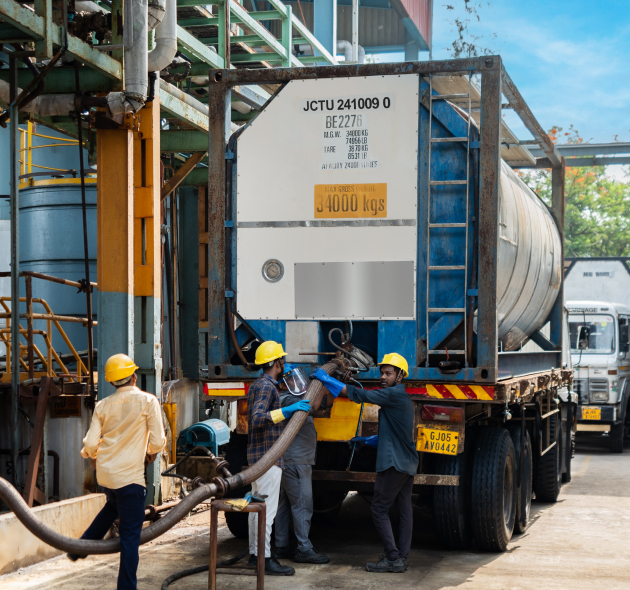Embracing an
eco-forward culture
Leading the charge towards a sustainable future, Anupam Rasayan India Limited integrates eco-forward thinking into every facet of its operations. Our sustainability strategy is deeply intertwined with our business growth plans. We adopt responsible operations and ethical practices with a long-term view of the future, positively impacting the broader economy.

Building a
greener legacy
We believe sustainability and innovation go hand in hand. By 2027, we are committed to achieving net-zero energy,
demonstrating our aspirations through tangible actions and transparent reporting. Utilizing cutting-edge technology,
we are reducing emissions and enhancing our use of renewable energy sources.


Advancing social welfare
Our people are central to our mission. We value respect and fairness in our business practices and aim for zero accidents, gender parity, and socioeconomic development. Our initiatives include the design of safe processes, ongoing safety training programs, diversity and inclusion workshops, and community development projects. Additionally, we increased the average training hours per employee by 55.81% and aim to double it by 2030.
We are committed to continuously improving our engagement with the people through:
A safe, diverse, and equitable workplace fostering growth and employee friendly policies.
Collaborative stakeholder relationships built on respect, responsiveness and rigor.
Building trust and integrity
Strong governance is the cornerstone of our sustainability efforts. We adhere to global standards like GRI and UNSDGs. Our ESG Committee drives our sustainability strategies, ensuring alignment with global best practices. Our Information Security and Data Protection Policy ensures robust data privacy measures. We are committed to ethical practices through our Code of Conduct and routine human rights assessments and social audits.
At the helm of our sustainability efforts is our dedicated committee, serving as the apex governance body. This committee delves into a spectrum of social, environmental, and economic considerations, identifying risks and opportunities to weave sustainability seamlessly into our strategies, policies, and procedures. Our commitment extends to fostering diversity and gender equality, represented by a notable 25% representation of females on the board.
Serving globally, empowering locally
We prioritize local sourcing to support sustainability initiatives. Our focus on local sourcing reduces our carbon footing and strengthens our operational flexibility. In FY2024, 82.81% of materials were sourced locally, up from 80% FY2023. This strategic approach led to a significant increase in locally sourced materials.


Materiality assessment framework
Our materiality assessment framework, revisited in FY2022, ensures our initiatives are aligned with global ESG norms and stakeholder expectations. Engaging with stakeholders through surveys and consultations, we prioritize and address critical sustainability topics. This process helps us mitigate risks and leverage opportunities, driving sustainable value creation for all our stakeholders. As detailed in our Sustainability Report for FY 2024, we adhere to a globally recognized framework of a four-step methodology for our materiality assessment.
Charting success with
eco-conscious practices
Aligning closely with the UN's Social Development Goals, we implement
practices that positively impact both the planet and people.





- Prevention of pollution
- Sustainable resource use
- Climate change mitigation and adaptation
- Protection of the environment and restoration of natural habitats





- Due diligence
- Human rights risk situation
- Avoidance of complicity
- Resolving grievances
- Discrimination and vulnerable groups
- Economic, social and cultural rights



- Employment and employee relationships
- Condition of work and social protection
- Health and safety at work
- Human development and training in the workplace



- Anti-corruption
- Fair competition
- Respect of property rights



- Fair marketing, factual and unbiased
- Information and fair contractual practices
- Protecting consumers health and safety
- Consumer service, support and complaint and dispute resolution
- Consumer data protection and privacy
- Education and awareness




- Community involvement
- Employment creation and skills development
- Technology development and access
- Wealth and income creation
- Health

- Organizational governance of Anupam Rasayan
Noteworthy milestones
Creating the benchmark
for safety
















